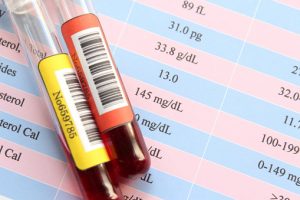
When it comes to our health, knowing the right numbers can mean the difference between healthy and unhealthy. Numbers play an important role in our overall health. Numbers can tell us the blood count, the bone density… Basically, anything health-related is associated with a number. When it comes to matters of the heart, there are five essential numbers you should be aware of to get a well-rounded synopsis of how your heart is doing.
5 essential heart numbers you should know
Advertisement
When you go and visit your doctor, they spit out plenty of numbers related to your heart health. But if you don’t understand what they mean, you may be left confused or unaware of the danger your heart could be in. Here, we explain what those essential numbers are and what they mean for your heart health.
Blood pressure: Blood pressure actually consists of two numbers: systolic and diastolic. It’s important to know and understand what your blood pressure numbers mean, as these are the number one indicator for cardiovascular disease.
Ideally, you want a reading of 120/80, anything between 120 and 139 puts you in the category for pre-hypertension, which is essentially a warning sign for hypertension. Lifestyle changes can effectively help lower your blood pressure numbers to ensure you are back in healthy range.
Cholesterol: Like blood pressure, cholesterol readings come in two forms: LDL and HDL. Ideal total cholesterol should be below 200, and LDL – or bad cholesterol – should be below 100. Cholesterol can put your heart at risk if your LDL reading is too high, but it’s important to distinguish which type of cholesterol is prevalent in your blood, because seeing high HDL generally isn’t a cause for concern. Once again, lifestyle habits can work to keep your cholesterol in check. For some, though, high LDL is hereditary, and so your doctor will monitor you to ensure its levels don’t rise too high.
Fasting glucose: Fasting glucose is commonly a test to diagnose diabetes, which not only affects blood sugar levels and insulin, but your heart as well. This blood test is done without consuming food for at least eight hours to measure insulin levels in the body. Normal fasting glucose numbers should read under 100. A reading between 100 and 125 is bordering high, but weight loss and diet changes can improve it.
Advertisement
Body mass index (BMI): Body mass index takes into account your height and weight. The result is an estimate of body fat. A score of below 18.5 is considered underweight, 18.5 to 24.9 are considered normal, 25 to 29.9 is overweight, and a score over 30 is obese. Although many doctors use BMI, recent studies have shown that it may not always be effective in determining health, but it is still an important number to consider.
Physical activity: This number won’t come up during your physical exam, but it’s something you should keep in mind in order to maintain a strong, healthy heart. A sedentary lifestyle is a large risk factor for cardiovascular disease. Spending adequate amount of time on physical activities can help to lower your risk of cardiovascular conditions and improve your other heart numbers as well. It is recommended that Americans get at least 30 minutes of physical activity a day, and yet many of us are not. Even if you are unable to complete 30 minutes straight, breaking up your time in 10-minute intervals to achieve the recommended 30 minutes is still beneficial.
Now that you are aware of the important heart numbers available to you, you can make appropriate adjustments according to what your numbers read in order to improve your heart health.
